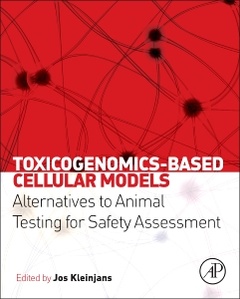Description
Toxicogenomics-Based Cellular Models
Alternatives to Animal Testing for Safety Assessment
Coordinator: Kleinjans Jos
Language: English
Subjects for Toxicogenomics-Based Cellular Models:
362 p. · 19x23.3 cm · Hardback
Description
/li>Contents
/li>Readership
/li>Comment
/li>
Toxicogenomics-Based Cellular Models is a unique and valuable reference for all academic and professional researchers employing toxicogenomic methods with respect to animal testing for chemical safety. This resource offers cutting-edge information on the application of toxicogenomics to developing alternatives to current animal toxicity tests. By illustrating the development of toxicogenomics-based cellular models for critical endpoints of toxicity and providing real-world examples for validation and data analysis, this book provides an assessment of the current state of the field, as well as opportunities and challenges for the future. Written by renowned international toxicological experts, this book explores ?omics technology for developing new assays for toxicity testing and safety assessment and provides the reader with a focused examination of alternative means to animal testing.
Chapter 1. Introduction and Scoping Chapter 2. Genotoxicity and Carcinogenesis Chapter 3. Immunotoxicity Chapter 4. Reproduction Toxicity Chapter 5. Organ Toxicity Chapter 6. Toxicoinformatics Chapter 7. Validating Toxicogenomics Assays Chapter 8. Implementation Outlook
Scientists, academics and students within the fields of toxicology and molecular biology, as well as regulatory authorities involved in chemical safety
- Describes the state-of-the-art in developing toxicogenomics-based cellular models for chemical-induced carcinogenicity, immunotoxicity, developmental toxicity, neurotoxicity and reproduction toxicity
- Illustrates how to validate toxicogenomics-based alternative test models and provides an outlook to societal and economic implementation of these novel assays
- Includes an overview of current testing methods and risk assessment frameworks
- Provides a real-world assessment by articulating the current development and challenges in toxicogenomics while suggesting ways to move this field forward
These books may interest you

Statistics in Toxicology Using R 105.47 €

Statistics in Toxicology Using R 56.31 €

Principles of Toxicology Testing 214.69 €

